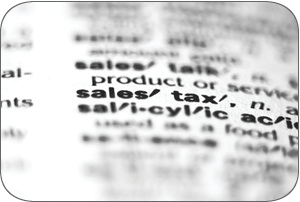Prior to the widespread adoption of ecommerce, handling sales and use tax was relatively feasible for businesses, especially those with limited customer bases or geographical scopes. This typically involved reporting to a small number of jurisdictions and dealing with occasional changes in sales tax rules or rates. Nevertheless, certain aspects of the process, such as managing sales tax exemption certificates, could still be intricate and difficult.
With ecommerce emerging as a primary sales avenue, even the smallest company can cater to customers nationwide. Since the 2018 Wayfair ruling, businesses must stay abreast of sales tax rate and regulation alterations across numerous jurisdictions. Moreover, they must handle exemption certificates from various states and jurisdictions, each with its unique expiration and management protocols. Additionally, these businesses confront heightened risks of sales tax audits from any state where they have customers. Exemption certificates are frequently scrutinized by state auditors due to their common mishandling.
Managing these processes manually has become excessively burdensome and prone to risks due to the wide variations across states. Fortunately, automation technologies have evolved to meet these challenges, and adept professionals have honed their skills to guide clients through these complex tasks.
Kristin Terdik, Vice President of Sales and Partnerships at Tax CSA, emphasizes that many businesses only realize the complexities of exemption certificate management and other sales tax issues when seeking advice on ecommerce platforms or sales tax systems. Some may be prompted by audits or newly discovered compliance obligations. Tax CSA assists businesses across the U.S. through implementation of sales tax technology, compliance services and processes to mitigate audit risks thereby facilitating a positive return on investment.
Terdik notes that many businesses still rely on outdated methods for managing certificates and sales tax rates, unaware that automation can streamline these processes and minimize risks. Tax CSA, recognized as an Avalara partner and Certified Implementation Expert, leverages Avalara’s systems to assist businesses in various industries, ranging from startups to Fortune 500 companies.
Avalara offers automated tax solutions catering to businesses of all sizes, including sales tax calculation, reporting, returns, exemption certificate management, and more. Tax CSA, with its extensive expertise in sales tax and certificate management, assists clients in implementing Avalara’s systems effectively, ensuring compliance from the outset or facilitating a transition for existing businesses to improve efficiency and accuracy.
An example provided by Terdik illustrates Tax CSA’s role in assisting a client in migrating from an outdated certificate management system to Avalara, resulting in enhanced visibility, reporting, flexibility, and automation during audits. Tax CSA aided the client in importing, digitizing, and automating over 40,000 certificates using Avalara’s ECM system, thereby rectifying issues such as missing, duplicate, and expired certificates, which could have led to penalties during audits.
When engaging with new clients, Tax CSA assesses their needs, often finding processes or non-integrated systems, including spreadsheets, with certificates scattered across multiple locations. Avalara’s scalable and cost-effective solutions enable Tax CSA to seamlessly integrate technology into clients’ sales and ERP systems, offering outsourced tax management services or empowering clients to manage functions in-house using Avalara technology.
In summary, Tax CSA collaborates with Avalara to automate clients’ sales tax processes comprehensively, ensuring compliance and minimizing risks. Clients benefit from Avalara’s user-friendly interface, extensive resources, and expert support, resulting in high levels of satisfaction.
Thanks for reading CPA Practice Advisor!
Subscribe Already registered? Log In
Need more information? Read the FAQs




